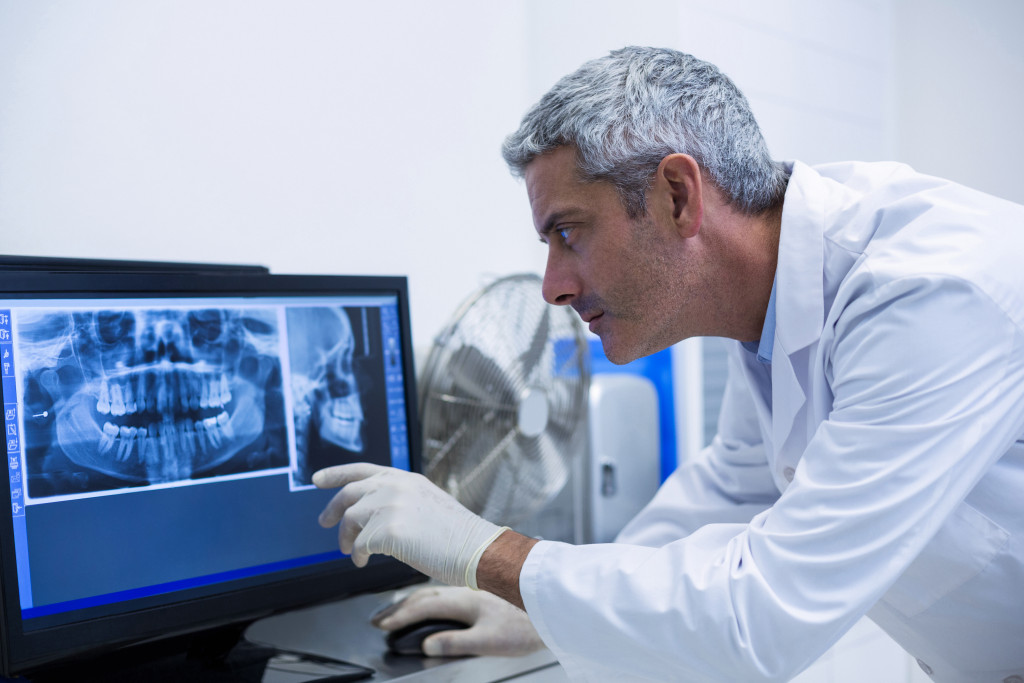It’s hard to imagine a medical procedure that technology hasn’t helped to enhance. From surgical procedures to rehabilitation exercises, technology has been able to help make healthcare processes more effective and efficient. However, it is not just technology within the medical field that has evolved over time–healthcare as an industry itself has changed in many ways since its invention centuries ago.
Aside from the examples mentioned above, technology has also enhanced the benefits of laser underarm removal, laser belly fat removal, and other aesthetic improvement procedures to name a few. Even though these procedures are mostly considered aesthetic improvements, the processes can be traced back to healthcare procedures. This blog post will discuss how technology has helped shape the evolution of medicine and how it can continue to do so in the future!
Benefits of Technology to Medicine
The world of healthcare is constantly changing. New technologies are being introduced every day, and it can be difficult to keep up with the latest developments. Technology has transformed medicine from a one-size-fits-all approach into a highly personalized medical model that focuses on each patient’s unique needs. Below are the benefits that technology has given to the field of medicine:
- Technology has made it easier to keep track of patients’ health conditions: This has made things more convenient for physicians as they are able to access their patients’ records and lab test results from anywhere. This has helped pave the way towards more personalized treatment methods for patients.
- Technology has helped improve the safety and accuracy of medical procedures: The use of technology in the healthcare industry is on the rise, with more than one million people getting robotic spine surgery every year due to its precision. It helps decrease surgical errors by eliminating human error from manual tasks such as correct positioning during a procedure. As a result, medical procedures have become safer and more accurate because of technology.
- Technology has given physicians better tools to diagnose: With the help of technology, physicians have been able to quickly make a diagnosis for their patients with more accuracy than ever before. In fact, some medical centers use virtual reality technology in order to simulate surgery so doctors can practice before the real thing.

- Technology has changed how patients learn about their health: Another way technology has helped improve medical procedures is by giving patients more information about their conditions and treatments, so they feel empowered to make decisions for themselves. For example, patient education videos on YouTube are a helpful tool in teaching people who have diabetes what foods they can and cannot eat. As a result, patients who watch the videos are more likely to get better control of their health.
- Technology has allowed medicine to stay up-to-date with new developments and breakthroughs in medical research: This is very important because technology has allowed medicine to stay up-to-date with new developments and breakthroughs in medical research. For example, technology like MRI machines has helped doctors diagnose patients by providing images of the inside of their body without having to do invasive procedures such as surgery. As a result, patients no longer have to suffer just so doctors can get a better idea of what is going on.
- Technology has made medicine more accessible to everyone: Technology has also allowed doctors to provide medical care for patients who live in remote areas, and technology has made it so that patients no longer have to make appointments just days or weeks before their scheduled procedure. They are able to schedule an appointment and have technology do the rest.
Using Technology Wisely and Responsibly
Despite the benefits of technology, healthcare providers still need to make sure that technology does not get in the way of providing quality care. Technology is only a tool, and technology cannot replace good medicine. Medical providers have to constantly use technology wisely and responsibly so that they can continue to provide high-quality outcomes for their patients.
Patients will be able to benefit from technology that will improve their quality of life, but technology cannot replace the doctor-patient relationship. Therefore, it is still important for healthcare providers to face their patients in person and to engage with them.
As technology has improved, there are now many ways for healthcare providers to promote better health outcomes for the people. By using technology in the medical field responsibly, more people will be able to achieve better health outcomes. This will help create a healthy society that will be able to work and live more productively.




